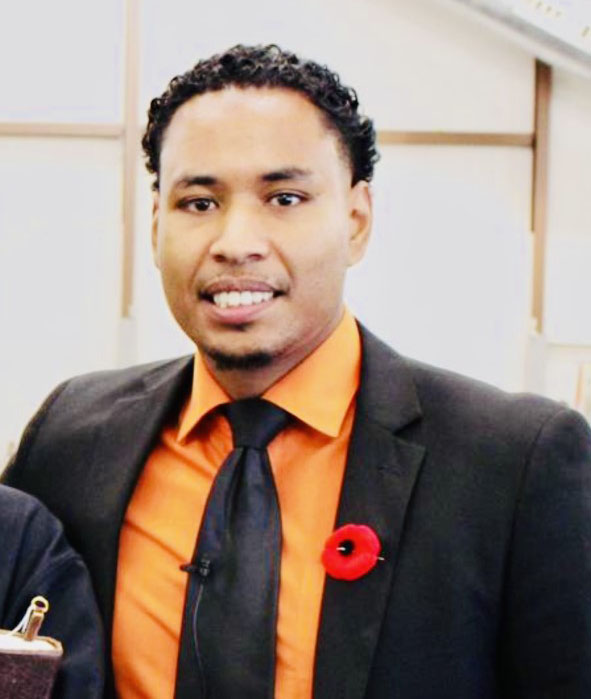
[tta_listen_btn listen_text="Click to listen to this story" pause_text="Pause" resume_text="Resume" replay_text="Replay" start_text="Start" stop_text="Stop"]
After identifying a glaring need to better support undergraduate students in psychology from historically under-represented groups, the Justice, Equity, Diversity & Inclusion Group within York University's Department of Psychology developed the Research Experiences to Support Diversity & Inclusion (REDI) program, a pilot program providing marginalized and racialized students with low-barrier opportunities to gain experience in a psychology research lab.
To become a registered psychologist in Canada, students need to be accepted into a graduate program at a post-secondary institution. These programs are highly competitive, receiving hundreds of applicants each year and only accepting a very small percentage of them. Out of the students who get accepted each year, very few identify as Black, Indigenous or people of colour (BIPOC), first-generation students, 2SLGBTQIA+ or students with disabilities, leaving a gap between the population served and future researchers and clinicians.
One of the many requirements to these highly competitive graduate programs in psychology is that students must demonstrate robust extracurricular research experience at the undergraduate level. In psychology departments, there are a limited number of research labs, and the high number of students seeking research experience each year creates a competitive scenario. The demand often exceeds the available supply, making it challenging for students to secure these opportunities.

"BIPOC students such as myself face additional barriers to gain undergraduate research opportunities, such as limited time to volunteer in labs because of work or caregiver duties, lack of mentorship because of their first-generation student status, and racial prejudice due to having an ethnic-sounding name on their CV or being a person of colour," said Jama Maxie, a final-year specialized honours psychology student of Indigenous and Afro-Black Canadian heritage who has plans to pursue a master's in clinical psychology.
The issue of educational equity arises long before the graduate application process, as it is extremely difficult for historically under-represented students to gain the research experience needed to be considered for these competitive programs. York's REDI program aims to fix this.
As part of the program, a centralized application and matching process is used to place student volunteers in available research labs. Priority is given to students from historically marginalized communities, recognizing the significant hurdles they face in accessing volunteer opportunities.
Once matched to a research lab, students gain first-hand experience with psychology research through observation, shadowing, scaffolding, mentorship and reflection. The program is designed to provide an experiential learning opportunity as opposed to a volunteer experience where the researchers are the primary beneficiaries.
In the summer of 2022, Maxie gained his first exposure to a research lab at Toronto's St. Michael's Hospital through Co-operative Education & Work-Integrated Learning (CEWIL) Canada's work-integrated experiences for Black students program. He was able to leverage this experience to gain other volunteer research positions and use what he learned to inform individual research projects, conference presentations and an honours thesis. In addition, he was able to share with his peers and professors at York how impactful the experience had been to his academic and career trajectory, and bring those learnings to his role as an undergraduate student co-ordinator for the REDI program in the summer of 2023.
"When I was approached to assist with co-ordinating the REDI program pilot, it was a no-brainer to get involved, as the program is very meaningful to me," he explained. "My most crucial responsibility was to offer peer mentorship. Having been in REDI students’ shoes as a BIPOC student in psychology, my unique experience enabled me to empathize with students in a way that not many can."
By the end of the program, students can expect to use their experience as a valuable addition to their graduate school or job applications, or as a networking opportunity for future positions.
For participating faculty members, the program serves as an opportunity to enrich their labs by including more diverse student perspectives and aligning with York University's Decolonization, Equity, Diversity and Inclusion (DEDI) Strategy. This not only benefits the faculty members but also enhances the overall lab culture, making it more inclusive and reflective of the community they research and serve.
"I am reminded of the importance of initiatives like REDI when I walk into a psychology lab; the stark reality often hits – the under-representation is palpable," said Maxie. "The REDI program provided me with a foot-in-the-door opportunity so that I have the same opportunity for graduate school as anyone else."
In its pilot phase, the REDI program was offered to 29 students in Fall 2023, who were placed in one of 12 research labs in York's Psychology Department. The faculty member overseeing the development of the program, Professor Jeffrey Wardell, received funding from the Faculty of Health’s Funds for Innovations in Teaching to support the initial development of the program. The goal of the pilot was to establish the feasibility of the program and gain feedback from participating students about their experiences.
Now that the pilot phase is complete, Wardell and other members of the department's Justice, Equity, Diversity & Inclusion Working Group have plans to scale up the initiative and are looking into ways to secure additional funding to support the administrative aspects of the program.
